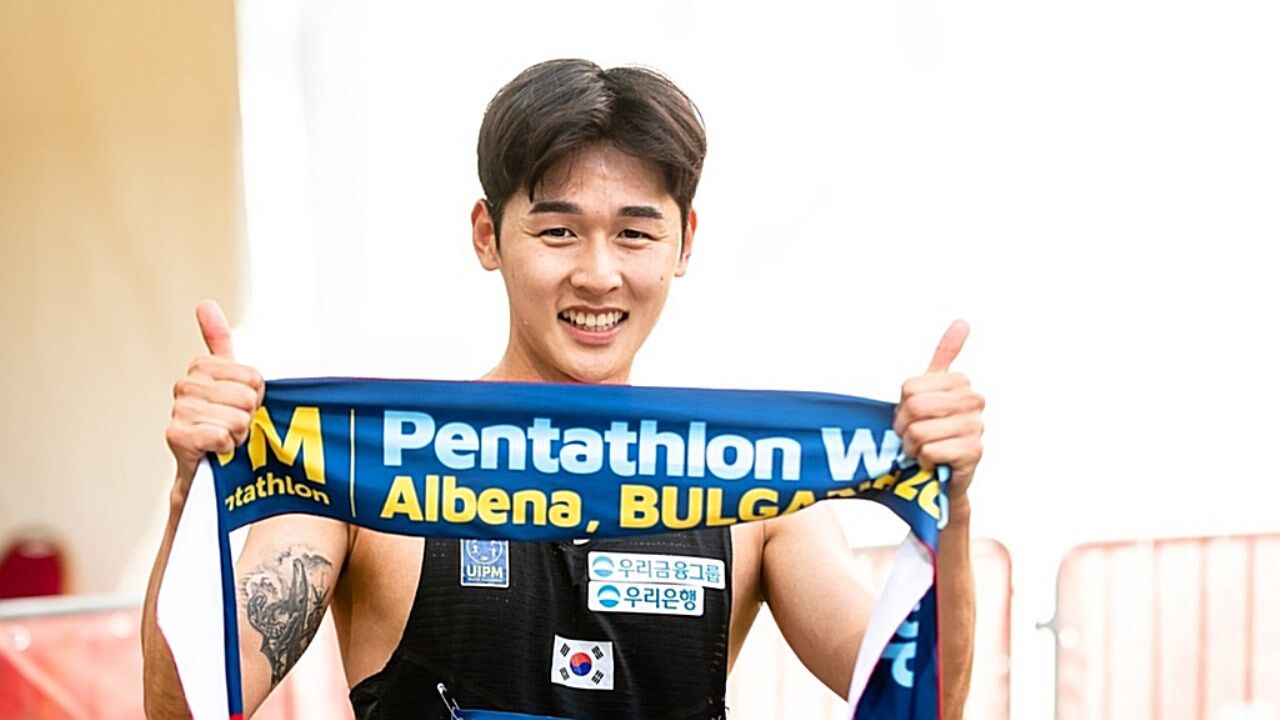Jun Woong-tae: Leading Korea in the Modern Pentathlon
“Any person who is able to finish such a competition is an excellent all-around sportsman, regardless of whether he wins or not.” — Baron Pierre de Coubertin, 1911
The modern pentathlon may not be as well known of the Olympic sports, but it is one of the most challenging. The pentathlon athlete has to train in five (pentathlon is from Greek, meaning “competition of five events”) sports, namely, fencing, horse riding, swimming, pistol shooting, and cross country running. Although it is called the “modern pentathlon,” it was first held in 1912 in Stockholm, Sweden, to replace the original pentathlon. According to Baron Pierre de Coubertin, the founder of modern Olympics, only athletes who can compete in five sports events are “complete” athletes, as it not only tests physical skills, but also one’s mental qualities.
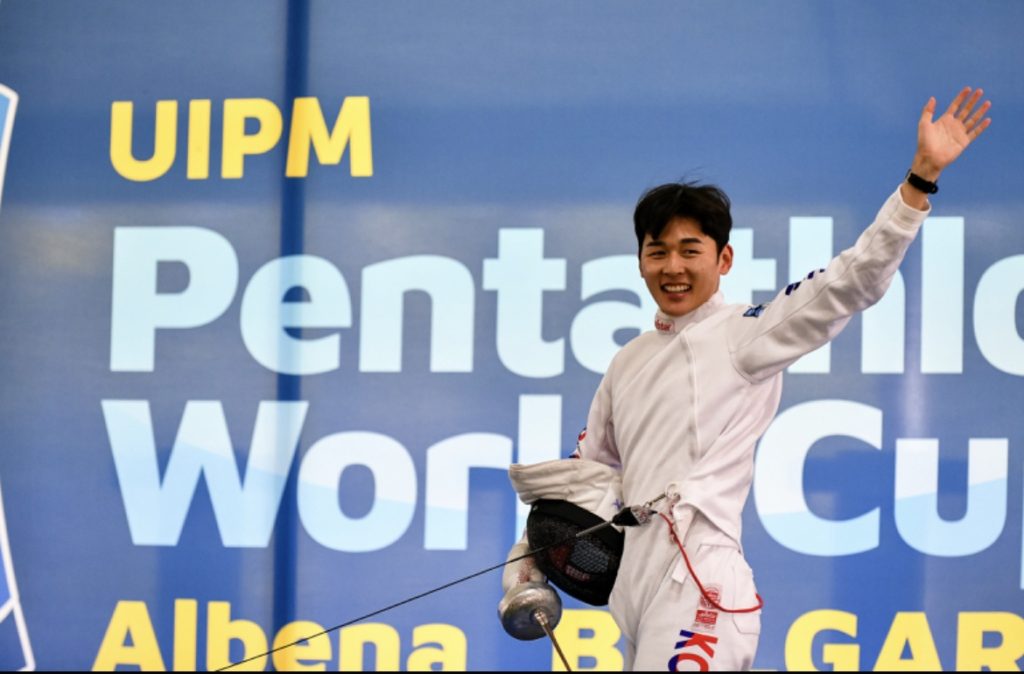
The five sports of the modern pentathlon competition are organized in four events: fencing, swimming, riding, and the laser run (shooting and running). In the laser run, athletes run for 300–600 meters on a cross-country-style course and stop to shoot a laser gun at a target placed at a 5–10-meter distance. They have to repeat the process two to four times. The athlete who crosses the finish line first wins the competition. Each event is worth 1000 points. These events are usually organized for one day. And if possible, all events should take place in one stadium or within a walking distance of each other.
Union Internationale de Pentathlon Moderne (UIPM, the International Modern Pentathlon Union) is the governing body, which organizes annual modern pentathlon World Championships as well as a World Cup series. Olympic Games are organized every four years and World Championships are organized annually. Each year, four to six World Cup competitions and a World Cup Final are organized every three to six months. Together, these competitions are called the “World Cup Series.” Each competition can be divided into individuals and relays.
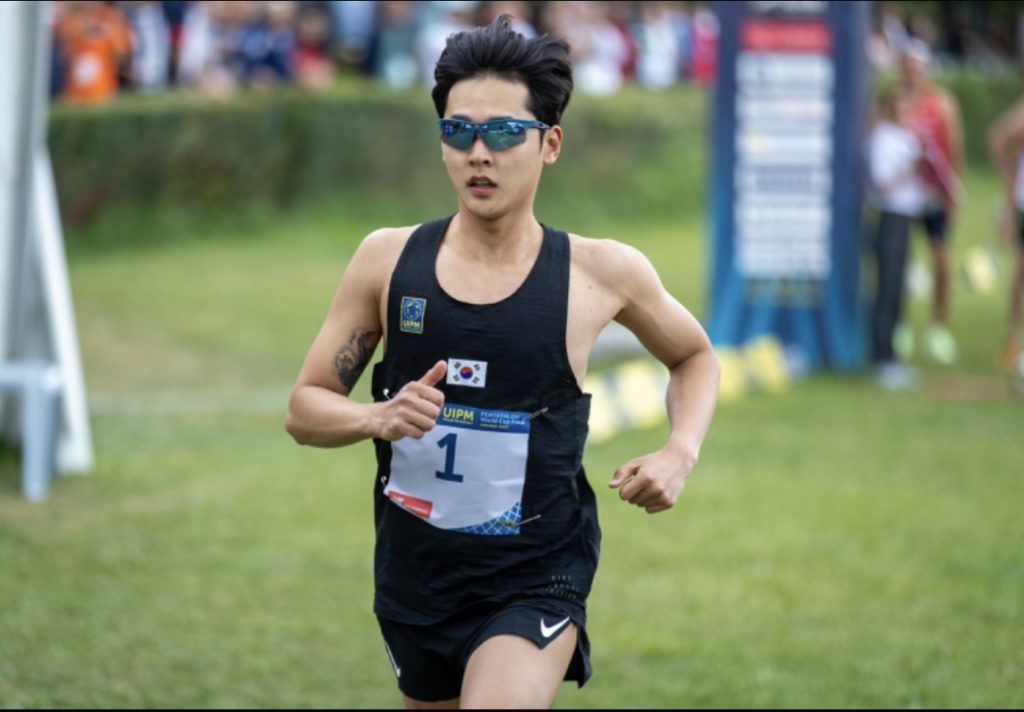
South Korea has been participating in the modern pentathlon in the Olympics since 1964, but it was only 57 years later, at the Tokyo Olympics, that Korea finally won a medal. Jun Woong-tae, who is originally from Seoul but represents Gwangju as a member of the City Hall club, earned a bronze medal for Korea, making it the first-ever medal for the country, and finished the competition with 1,470 points. To Jun, his bronze medal is as valuable as winning gold. However, he aims to have the Taegukki (태극기, Korea’s national flag) fly even higher in future Olympic Games. Aside from the bronze, Jun has also won four gold medals at UIPM World Championships and another gold at the 2018 Asian Games in Jakarta.
The most recent competition that Jun has taken part in is the 2022 UIPM World Championships in Alexandria, Cairo, held from July 23 to 31. Jun and Jung Ji-hwa won the men’s relay gold medal with 1,427 points and Jun also won a gold medal in a relay with Kim Sun-woo, finishing at 1,393 points. His winning streak earned the South Korean team the best performance of the competition with two golds, one silver, and one bronze medal. Arriving back in Gwangju on August 8, 2022, he was received by Gwangju Mayor Kang Gi-Jung, who had prepared a special welcoming ceremony to congratulate Jun.
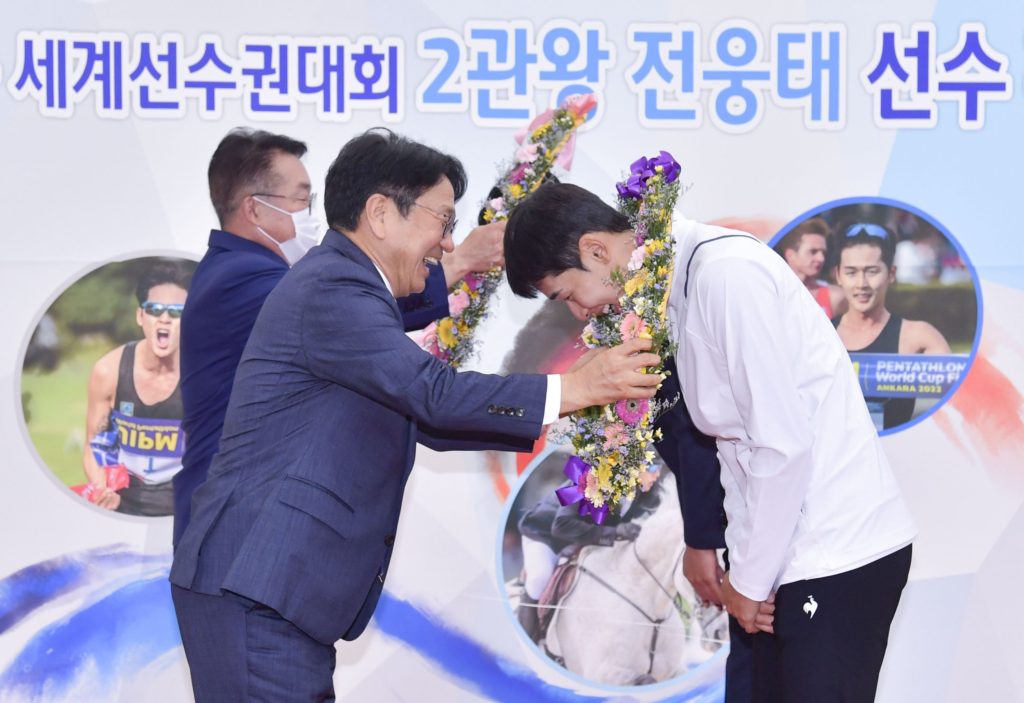
A promising and now world-leading athlete, Jun has stayed humble while training diligently. Despite his busy schedule, the Gwangju News recently managed to get a hold of Jun Woong-tae and get to know the man who has helped to create Korea’s pentathlon history.
Gwangju News (GN): Congratulations on your number-one ranking and for your men’s and mixed relay gold medal victories in the 2022 UIPM World Championships! Could you please introduce yourself to our Gwangju News readers?
Jun Woong-tae: Hello, my name is Jun Woong-tae, a modern pentathlon athlete. I train under Gwangju City Hall. Nice to meet you!
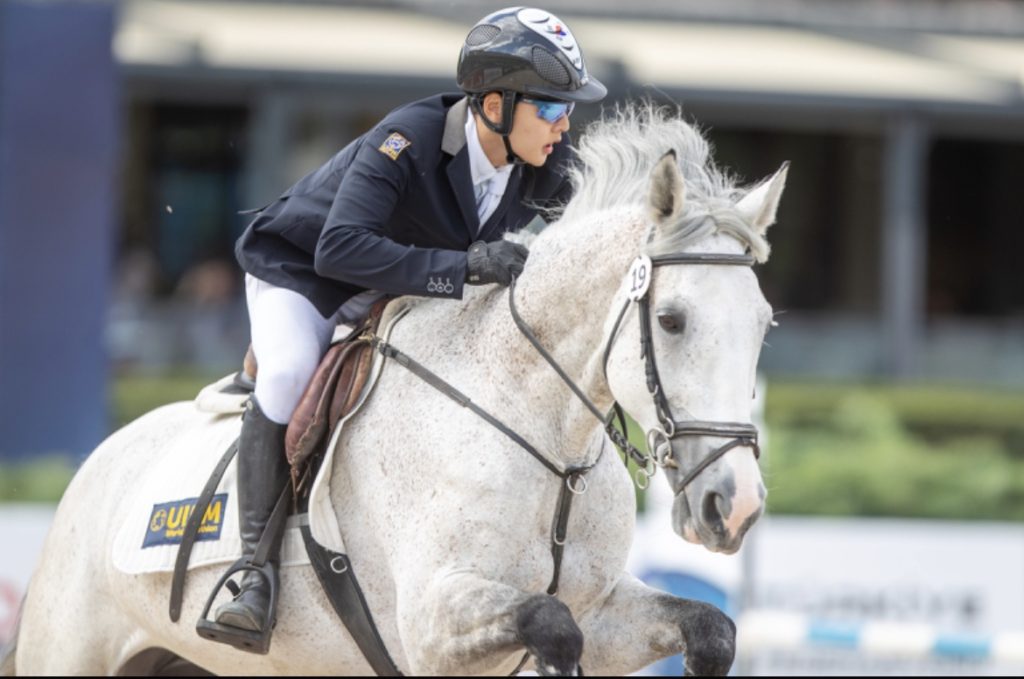
GN: Could you tell us when you started doing the pentathlon and what drew you to that grueling sport?
Jun Woong-tae: When I was 13 years old, I was naturally introduced to the modern pentathlon while learning to swim (at the Seoul Sports Middle School). Also, when I was in elementary school, I was very fat, but after I started doing the modern pentathlon, I lost a lot of weight very quickly (laugh).
GN: You are setting new world records in the modern pentathlon, which is dominated by Western players. The sweat, tears, and hard work that you have shed in the past will pass by as a panoramic picture. Could you share with us your most memorable moment?
Jun Woong-tae: I always remember every moment of my competitions, but I will never forget the first time I won an individual medal at the World Championships. I think it was the trigger that made me think that I can do anything. It’s the same feeling as being born again.
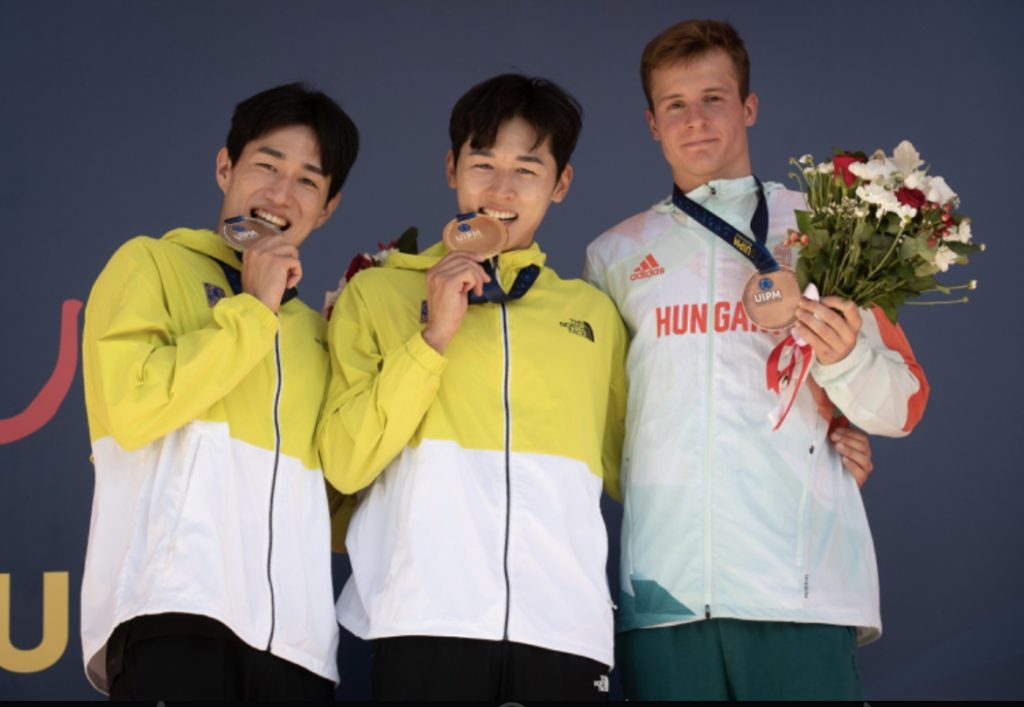
GN: At the 2022 UIPM World Championships in Alexandria, Egypt, South Korea won the most medals, beating Britain and Egypt, with two gold medals, one silver, and one bronze, making it our country’s best performance ever. You personally won two gold medals – in the men’s relay with Jung Jin-hwa and in the mixed relay with athlete Kim Sun-woo. Did you face any difficulties during the competition?
Jun Woong-tae: I am so grateful to my partners because I think that my partners did a great job in the relay and mixed relay, and the good result was because we depended on and trusted each other.
GN: Which of the modern pentathlon events is the most physically and mentally challenging?
Jun Woong-tae: There are no events that aren’t difficult in the pentathlon, but personally, I think the laser run event, which is a physical fitness event, is the most difficult. It’s hard during the event, but when I train to run for the event, I feel like I’m pushing my stamina to its limit.
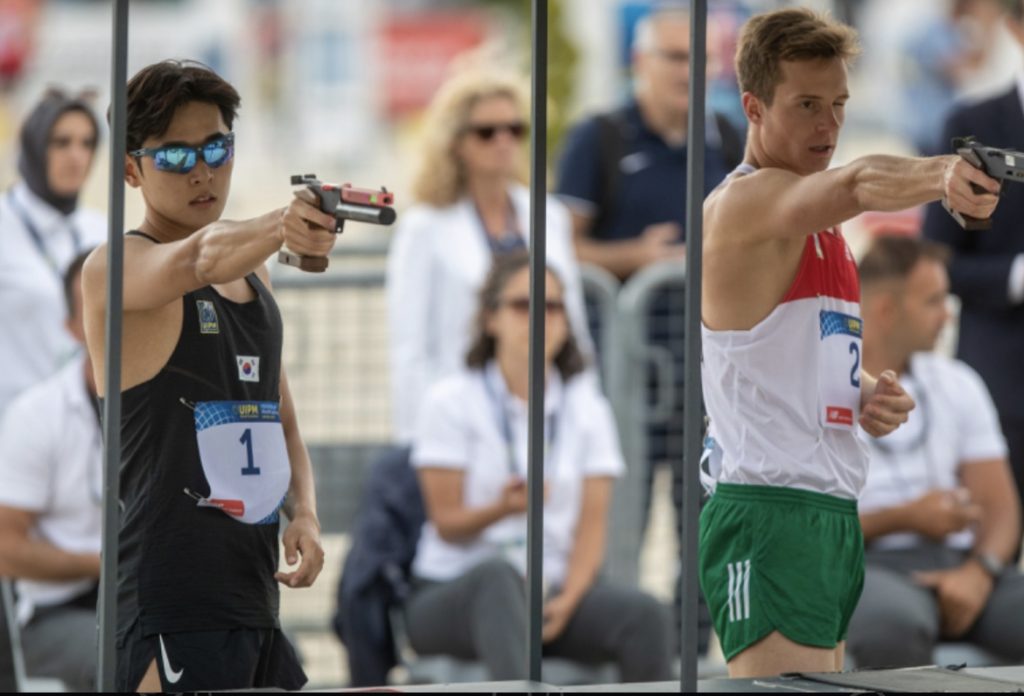
GN: Who is your inspiration or role model in life?
Jun Woong-tae: Jung Jin-hwa, who was also a pentathlon athlete, is my inspiration. While we were training together for a long time, I was able to learn everything from attitude to belief and self-management from him.
GN: I think you must have had a lot of difficulties in training. What was the most unforgettable difficulty? And how did you overcome that difficulty?
Jun Woong-tae: I think all athletes feel the most difficult time is when they are injured, and I also think for me it was the hardest when I was injured. Recovery takes time, but I try to be patient and devote myself to the treatment because my ultimate goal is to recover.
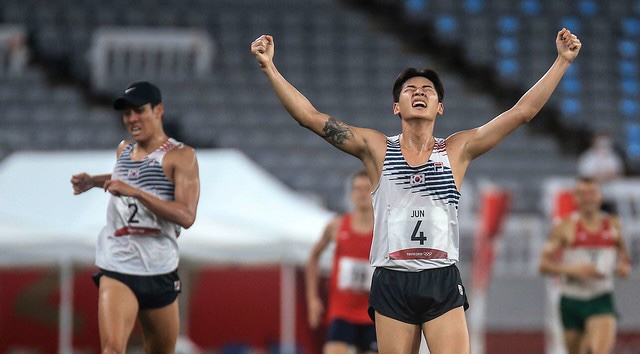
GN: I am curious to see what you will be like in 5 to 10 years from now. Please share with us any goal that you’d like to achieve during that time period?
Jun Woong-tae: I want to become an athlete who makes a mark in the history of the modern pentathlon. Rather than thinking about the distant future, I will aim for the 2024 Paris Olympics gold medal first. I will think about other things later.
GN: Do you have any hobbies or interests that occupy your free time?
Jun Woong-tae: In my spare time, I meet my friends, chat, and drink coffee together. I listen to a lot of songs, too! I also like going to a pet cafe with my dogs!
GN: As we conclude this interview, do you have any message that you would like to convey to our readers?
Jun Woong-tae: Thank you for your support. I will work harder so that the modern pentathlon team of Korea can bring pride to the world! Please give me even more support from now on!
GN: You have already brought much pride to Gwangju and to Korea! We wish you the best in your future pentathlon events, adding bronze, silver, and gold medals to your already substantial collection!
Interviewed by Karina Prananto and Moon Jeong-ah.
Photographs courtesy of the Korea Modern Pentathlon Federation (대한근대5종연맹).







